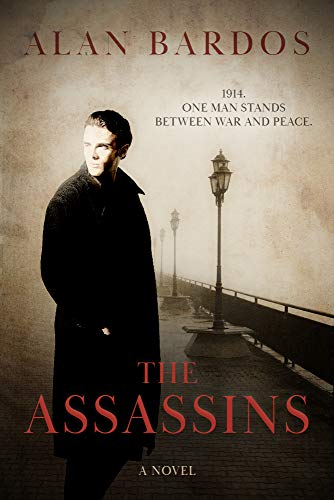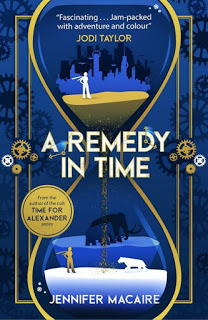Since I started limiting myself to blogging just once a week, a lot of my posts here have been book reviews. I really don’t want this to turn into a book blog, but there are a lot of good books out there and I like to help promote them.
This week I finished two very different historical novels. One was a serious book about the assassination that triggered World War I, while the second was a more tongue-in-cheek adventure set in the Palaeolithic. Both were, in very different ways, excellent reads. Here are my thoughts:
The Assassins – Alan Bardos
The Assassins is a novel based around the assassination of the Archduke Franz Ferdinand in Sarajevo in 1914. It was the murder that precipitated World War I, but who was Franz Ferdinand, why was he killed, and how on earth did this start one of history’s greatest bloodbaths?

If, like me, you’ve got some vague awareness that it was all to do with the Balkan Problem and Great Power alliances at the beginning of the 20th century, but you really struggle with more detail than that, then Alan Bardos’s book will, if nothing else, leave you much better informed. In fact, the time spent reading could be well justified purely for its value as a work of historical pedagogy. But, although there is the odd page where there is a danger of being overwhelmed by “facts” about the political situation, the book reads well as a work of fiction. This is mainly because we see events unfold through the eyes of an entirely made-up (at least, I really hope he’s entirely made-up) young chancer in the diplomatic service, Johnny Swift. Swift’s mother had been a governess. He has made it into the diplomatic service despite being, dash it all, pretty much from the servant class. His response to the continual prejudice and unpleasantness that he is exposed to from his superiors is to behave ever more outrageously, seducing his boss’s wife and embezzling embassy funds to feed his gambling habit.
Rather than dismiss Swift in disgrace and risk an open scandal, the diplomatic service sends him to Vienna to report on the political situation in the Balkans. He is passed from arrogant caddish official to arrogant caddish official, all of whom deny that there is anything to worry about in Bosnia, until he finally ends up in Sarajevo where he quickly learns that there is a violent nationalist movement threatening terrorist outrages.
A series of unlikely, but not incredible, events ends up with him being infiltrated into the Bosnian nationalist movement, mainly thanks to the efforts of Breitner, a disgraced Austro-Hungarian intelligence officer who, like Johnny, doesn’t come from the right background and whose intelligence on the nationalist movement is therefore systematically ignored by the Habsburg administration.
The mechanics of putting these characters into a position which means that the reader will be able to follow in detail the machinations that led to the Archduke’s assassination could be plodding and unrealistic. Instead, Bardos’s mastery of characterisation and fluent writing style carries the reader along with it. In fact, as we move closer and closer to the assassination, I found myself turning the pages desperate to see how it would work out – ironic as we all know exactly what happened.
There is a definite pause in the narrative thrust of the book once poor Franz Ferdinand and his wife (portrayed as easily the most sympathetic character in the book) are duly bumped off. However, Johnny Swift is not just a cipher created for purposes of plot and Bardos now has to conclude his story. Bardos manages to make us care as Johnny is bounced from meeting to meeting when nobody seems quite sure whether he should be given a medal or sent to prison. Again Bardos mixes fact and fiction really well with Johnny’s Odyssey taking the reader through the key moments that finally lead to war. In fact Johnny is even in the room as Sir Edward Grey, the Foreign Secretary, delivers the famous line: “The lamps are going out all over Europe. We shall not see them lit again in our time.”
Franz Ferdinand is dead; the world is about to be plunged into war; but what awaits Johnny? Johnny’s ultimate fate is a twist I did not see coming, but at least he’s still alive at the end of the book. I’m glad about that. Promiscuous, caddish, dishonest, and a thorough rascal he may well be, but he managed to make what could have been a boring history lesson into a most enjoyable read and it would be lovely to share his adventures again.
A Remedy in Time – Jennifer Macaire
Jennifer Macaire’s books combine wild action adventure plots against a meticulously researched background. Her latest thriller does not disappoint on either of these.

Although I am pretty sure the book was written before covid, the background is scarily contemporary: the world is being ravaged by a pandemic with no cure. The best possibility of a cure lies in the blood of sabre-tooth tigers (smilodons) which studies have shown carried the virus and from which you could make an antidote. Don’t spend too long worrying about this: it’s mainly an excuse for our feisty heroine (I really didn’t want to say that, but it’s that sort of book) to travel back to the Pleistocene (Macaire loves time-travel adventures), get a sample of sabre-tooth tiger blood and save the world.
What could possibly go wrong?
As if dire wolves, giant beavers, huge salmon with enormous teeth, and mammoths were not enough of a problem (not to mention the smilodons), the expedition is packed with Bad People, anxious to kill Robin and get the vital serum for themselves. Cue murder plots, terrible deaths and a great deal of running through the woods trying to avoid becoming something’s dinner.
Is this a good read? You betcha. Macaire’s writing is fluid and entertaining. I powered through the story. Is it an improving read? Well, oddly enough, it does have quite a lot of fascinating facts about the animals of the time, so you can claim an educational credit. Is it great literature? Of course not. It’s entertainment pure and simple and easy to disdain as commercial rubbish. But it’s huge fun and brightened my day at a time that we all need our days brightening. And, though it’s easy to dismiss this sort of thing as hack writing, it’s surprisingly difficult to get right. Macaire scores a bullseye on this style.
Read it. Love it. Beg for more.

Wonderful, wishing you all the best. I am sure this is a hit.